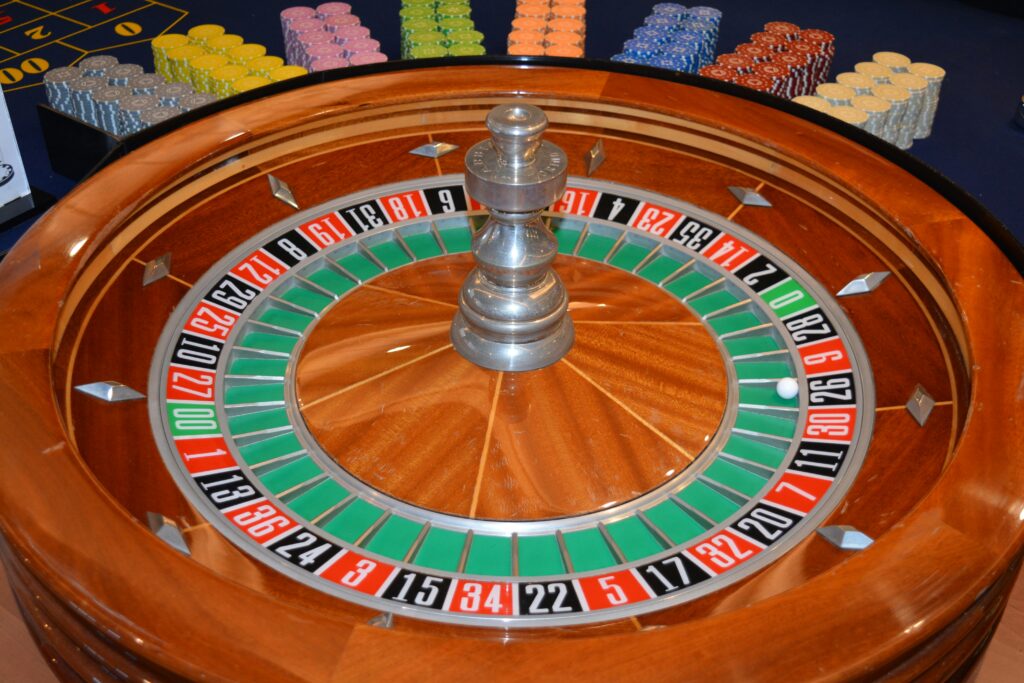Why Personal Limits Matter
Safe casino gaming starts with one key principle: knowing your boundaries. While casino games are designed to be engaging and entertaining, they can quickly become overwhelming without proper self-regulation.
Why Self-Regulation Is Essential
Setting personal limits isn’t just a precaution—it’s a proactive way to protect your well-being while maximizing enjoyment. Gaming should never compromise your financial stability or emotional health.
Benefits of self-regulation include:
- Reduced risk of problem gambling
- More mindful and intentional gameplay
- Better control over financial decisions
- A more enjoyable, stress-free experience
Enjoyment Without Excess
It’s possible—and encouraged—to enjoy casino games without going overboard. The most satisfied players know when to stop and how to avoid slipping into harmful patterns.
Key mindset shifts:
- Recognize gaming as a form of entertainment, not a way to make money
- Accept both wins and losses as part of the experience
- Focus on the fun—not the outcome
Self-Awareness is the First Step
Responsible gaming begins with honest evaluation. Ask yourself:
- “Why am I playing today?”
- “Do I feel in control of my spending and time?”
- “Am I prepared to walk away if it stops being fun?”
Identifying your answers helps build a foundation for long-term, healthy gaming habits.
Recognizing Your Risk Threshold
Understanding when to step away is key to playing safely. Casino gaming should remain a fun, relaxed activity—but certain behaviors and feelings can signal that your experience is shifting into risky territory.
When It’s Time to Pull Back
Knowing your personal red flags is crucial. Here are some common signs that you might be pushing your limits:
- You feel compelled to keep playing, even when you’re tired or losing.
- Frustration starts replacing fun, especially when outcomes don’t go your way.
- You find yourself chasing losses, believing the next spin or hand will fix everything.
- Time seems to disappear, and sessions last far longer than planned.
Emotional Red Flags to Watch For
Gaming can stir emotions—but if the emotional intensity becomes too high, it’s often a sign to pause. Pay attention to:
- A growing sense of urgency or desperation to win back money
- Moments of irritability or anxiety after a losing streak
- Feeling relieved rather than entertained when you stop
- Difficulty sleeping or focusing due to lingering thoughts about gambling
When Fun Turns Into Pressure
The biggest indicator that it’s time to set stronger boundaries? When the joy disappears. Gaming should feel like a light-hearted break—not a source of stress. If you begin to measure your success or self-worth by wins and losses, it’s time to reassess.
Stay alert to when the experience becomes emotionally charged. That’s when personal limits become not just helpful—but necessary.
Key Areas to Set Limits
Time: How Long Is Too Long?
Let’s start simple: if you have to ask yourself if you’ve been playing too long, you probably have. Gaming sessions should have a start and a stop—not just a vague idea of “when I’m done.” A good rule is to set a timer before you even log in. One to two hours is a healthy limit for most people. Anything more and fatigue starts to creep in, and decisions get sloppy. Take regular breaks. Walk around. Hydrate. Respect your time like you’d respect your money.
Spend: What Works Best?
You can’t control the odds, but you can control your budget. That’s where tools like loss limits, deposit caps, and fixed session budgets come in. Choose one—ideally all three. Set a hard line for how much you’re willing to lose in a day, and never chase to win it back. If you spend more time thinking about your balance than the game you’re playing, it’s time to log off. Budgeting isn’t just financial—it’s psychological armor.
Frequency: Playing Daily vs. Playing Intentionally
Playing every day doesn’t make you a high-risk gambler—but playing mindlessly does. Ask yourself why you’re logging on. Is it routine, reflex, or real intent? Intention is the difference between entertainment and escapism. If it’s just to fill a void in your day, consider taking that day off. Try spacing sessions across the week or setting specific days to play. Being selective beats being stuck in a loop.
Personal limits aren’t about restriction—they’re about staying sharp and keeping the fun in the game.
Tools That Help You Stay in Control
The best limits are the ones that don’t rely purely on willpower. Most reputable casinos—especially online—now include built-in tools to help you stay in check. Reality checks pop up with reminders of how long you’ve been playing. Cool-off periods let you walk away for a set time, no questions asked. And self-exclusion? That’s the hard line—locking yourself out entirely for a period you choose.
Then there’s the tech on your own side. Budgeting apps and digital wallets help you set clear caps on spending. Transfer limits, alerts, and prepaid balances keep you from going over without you even noticing. It’s not high-tech wizardry—it’s basic structure, and it works.
If you’re the type who needs more than software reminders, third-party support adds another layer. Services and support groups can help you clarify your boundaries and check your habits. No shame in reinforcements—it’s smart strategy. Use what works. The goal isn’t just control. It’s peace of mind.
Mental Framing: It’s Entertainment, Not Income
If you’re walking into casino gaming thinking it’s a side hustle, you’re already setting yourself up for trouble. The shift from chasing wins to enjoying the experience is more than just mindset fluff—it’s a guardrail. Treat streaming a game or spinning a slot like going to the movies or grabbing drinks. Fun while it lasts, but you’re not expecting a paycheck at the end.
Even with the best personal limits in place, if the underlying goal is to “win big,” those limits become suggestions you’ll start ignoring. Any rule, no matter how strict, buckles under the pressure of unrealistic expectations.
The myth of the hot streak is another trap. Getting a few wins in a row feels like confirmation that you’re onto something. Truth is, randomness doesn’t have memory. A “lucky run” doesn’t mean the odds just bent in your favor. If anything, it’s the perfect moment to walk away feeling good—not start doubling down believing you’re invincible.
Winning might happen. That’s luck. Fun should be the goal. That’s in your control.
How to Build a Personalized Gaming Plan
Before you open the app or visit a site, decide where your lines are. Define exactly how much time and money you’re willing to spend. Write it down. Make it real. Vague numbers in your head won’t hold up when the rush kicks in.
Use checkpoints to keep yourself honest. Set a recurring weekly or monthly review—just ten minutes. Ask: Did you stick to your limits? Did you feel in control? If the answer’s “no,” make adjustments. Your plan isn’t rigid; it’s a living safeguard.
Lastly, don’t go it alone. Share your limits with a partner, a trusted friend, anyone who’ll hold you accountable. Saying it out loud makes it harder to ignore when you’re tempted to cross the line. Accountability isn’t weakness—it’s strategy.
Signs You Need to Re-Evaluate
Setting personal limits is a strong first step—but limits are only effective if they’re respected. Recognizing when those boundaries begin to slip is essential for maintaining control and keeping your gaming experience positive.
When Limits Stop Working
If you find yourself frequently overriding your preset limits or feeling indifferent toward them, it’s time to reassess.
- Do you adjust your deposit cap mid-session?
- Are you increasing your time on gambling apps week after week?
- Do your “rules” feel more like suggestions than non-negotiables?
These are signs that your current structure isn’t fully supporting your goals.
Emotional Red Flags
Irritation, frustration, or an emotional spike during or after gaming sessions can signal a shift in how you relate to the activity.
- Do you feel on edge when you lose?
- Is losing followed by more aggressive betting to “get it back”?
- Do wins stop feeling enjoyable and start feeling necessary?
When emotions start running the show, your limits can quickly lose their power.
Ignoring Boundaries You Set
One of the strongest indicators it’s time for change is when you knowingly bypass your own rules.
- Are you playing past your scheduled ‘stop time’?
- Have you disabled tools like time reminders or deposit caps?
- Do you justify overplaying because you had a rough day or feel lucky?
Consciously breaking your own rules isn’t a sign of failure—it’s a signal to pause, step back, and possibly tighten those boundaries for your well-being.
For a deeper look at warning signs, check out this resource:
Identifying the Signs of Problem Gambling Early
Final Word: Real Enjoyment Comes From Staying in Control
Setting personal limits isn’t about restriction—it’s about clarity. When you define your own rules, you remove guesswork and avoid slipping into habits that steal the fun out of gaming. Long-term satisfaction doesn’t come from chasing one more spin or bet. It comes from knowing when to walk away, still in control and still enjoying the process.
This means knowing your limits—how much time, how much money, how much emotional energy you’re willing to spend. And then sticking to those boundaries, even when the game is tempting you to go further. It’s not always easy, but it’s always worth it.
Keep it simple. A few steady rules beat a dozen complex strategies. Whether it’s a weekly play window, a spending ceiling, or a rule to never chase a loss—simple systems work. They keep things fun. And more importantly, they keep you safe.



